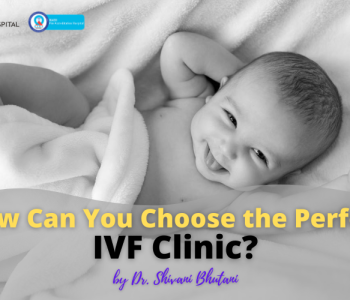 IVF
IVF
कितनी बार आईवीएफ संभव है ?
गर्भावस्था और मातृत्व कई महिलाओं के लिए एक असम्पूर्ण सपना बन जाता है, जब वे गर्भ धारण करने और गर्भवती होने में असमर्थ होते हैं। आधुनिक विज्ञान के कारण , ऐसे कई नए तरीके हैं जिनसे आप गर्भवती होने का लक्ष्य बना सकती हैं। बांझपन की दवाएं और एआरटी-असिस्टेड रिप्रोडक्टिव तकनीक की विभिन्न प्रक्रियाएं गर्भावस्था की स्थिति को प्राप्त करने के लिए एक वैज्ञानिक वरदान हैं।
आईवीएफ चिकित्सा कितनी सफल है?
आईवीएफ वह प्रक्रिया है जहां महिला के डिंबग्रंथि(ओवरी ) से अंडों को निकाला जाता है , नियंत्रित प्रयोगशाला में निषेचित किया जाता है और फिर परिणामस्वरूप भ्रूण को गर्भाशय ग्रीवा के माध्यम से महिलाओं के गर्भाशय में स्थानांतरित किया जाता है। यदि कोई प्राकृतिक तरीकों से गर्भवती होने की कोशिश कर रहे हैं और सफल नहीं हुए हैं, तो आगे की जांच के साथ, बांझपन के कारणों की जांच की जाती है ।
आमतौर पर, 40 वर्ष के अंतर्गत के रोगियों को जल्द से जल्द आईवीएफ चिकित्सा की सिफारिश की जाती है।
आईवीएफ दुनिया के सभी देशों में काफी सफल रहा है। रोग नियंत्रण और सीडीसी अमेरिका के आख्या अनुसार प्रति वर्ष 4 मिलियन जन्मों में से १-२ % शिशुओं का जन्म आईवीएफ से संभव किया जाता है। यह स्पष्ट रूप से दर्शाता है कि बांझपन का मुकाबला करने में आईवीएफ और अन्य एआरटी तकनीक काफी सफल रहें हैं।
आईवीएफ की सफलता को प्रभावित करने वाले कारक क्या हैं?
आईवीएफ की सफलता को प्रभावित करने वाले कुछ कारक हैं। डॉ शिवानी भूटानी कहती हैं, “आईवीएफ की सफलता में महिला की उम्र एक प्रमुख कारक है। 35-41 आयु वर्ग के मरीजों में सफल आईवीएफ प्राप्त करने की संभावना अधिक है। 42% से अधिक आयु वाले रोगियों की सफलता की दर 4% है।
बांझपन का कारण यह भी निर्धारित करता है कि रोगी कितनी जल्दी गर्भवती हो सकती है। कभी-कभी ओवेरियन स्टिमुलेशन दवाओं की एक बड़ी खुराक से डिम्बग्रंथि रोग के रोगियों को प्रशासित करने की आवश्यकता होती है।
पिछली गर्भावस्था, गर्भपात, दाता के अंडो के मामले में, दाता की उम्र और दंपति को बांझ होने की अवधि आईवीएफ की सफलता को प्रभावित करने वाले कुछ अन्य कारक रहे हैं। डॉ। भूटानी दृढ़ता से कहते हैं कि चिकित्सा संबंधी असामान्यताओं के अलावा, रोगी की जीवनशैली आईवीएफ की सफलता को निर्धारित करने में महत्वपूर्ण भूमिका निभाती है। अधिक वजन या कम वजन वाली महिलाएं, धूम्रपान करने वाली महिलाएं, जो महिलाएं व्यायाम नहीं करती हैं या स्वस्थ नहीं रहती हैं उनमें लंबे समय तक बांझपन की संभावना अधिक होती है।
निष्कर्ष
गर्भावस्था कई जोड़ों के लिए एक ख्वाब है | हमारी सर्वश्रेष्ठ टीम आपके सपने को वास्तविकता में बदलने में आपके साथ है। कौशल और विशेषज्ञता में दक्ष और ईवा अस्पताल के अत्याधुनिक सुविधाओं के साथ, डॉ। शिवानी भूटानी पंजाब में आईवीएफ के लिए सबसे प्रतिष्ठित हैं। ईवा हॉस्पिटल में सर्वश्रेष्ठ विशेषज्ञों की सहायता से , अपने उलझनों को हल करें और पितृत्व के स्वप्न को वास्तविक आकार प्राप्त करने दें।
